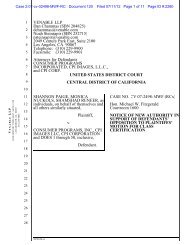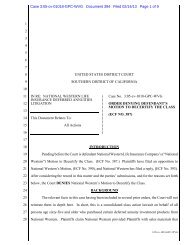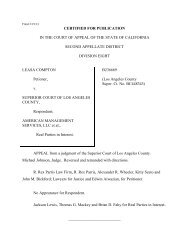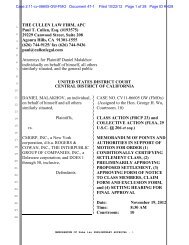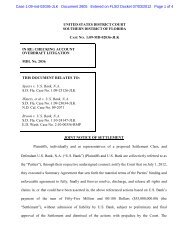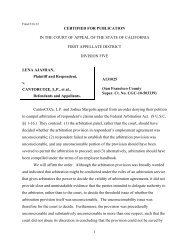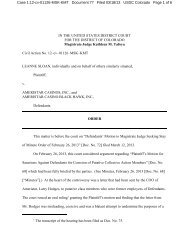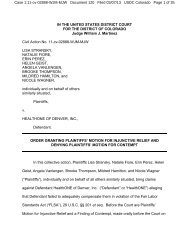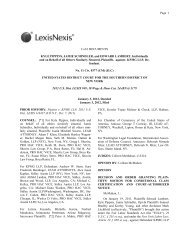here - FindLaw
here - FindLaw
here - FindLaw
You also want an ePaper? Increase the reach of your titles
YUMPU automatically turns print PDFs into web optimized ePapers that Google loves.
A. Arbitral Claims<br />
As a preliminary matter, we must decide who should decide whether the<br />
Agreement is illusory. Neiman Marcus contends the arbitrator should decide that<br />
question. Peleg presses for a judicial determination.<br />
This issue is comparable to determining (1) which claims, if any, are arbitrable —<br />
arbitrability — or (2) whether an agreement is unconscionable. Questions of this type are<br />
reserved for the court unless the parties clearly and unmistakably delegate them to the<br />
arbitrator. That did not happen <strong>here</strong>.<br />
In discussing who — an arbitrator or a judge — decides arbitrability, the United<br />
States Supreme Court has explained: ―We believe the answer to the ‗who‘ question . . . is<br />
fairly simple. Just as the arbitrability of the merits of a dispute depends upon whether the<br />
parties agreed to arbitrate that dispute, . . . so the question ‗who has the primary power to<br />
decide arbitrability‘ turns upon what the parties agreed about that matter. . . . [] . . . []<br />
―When deciding whether the parties agreed to arbitrate a certain matter (including<br />
arbitrability), courts generally (though with a qualification we discuss below) should<br />
apply ordinary state-law principles that govern the formation of contracts. . . . The<br />
relevant state law <strong>here</strong>, for example, would require the court to see whether the parties<br />
objectively revealed an intent to submit the arbitrability issue to arbitration. . . .<br />
―This Court, however, has (as we just said) added an important qualification,<br />
applicable when courts decide whether a party has agreed that arbitrators should decide<br />
arbitrability: Courts should not assume that the parties agreed to arbitrate arbitrability<br />
unless t<strong>here</strong> is ‗clea[r] and unmistakabl[e]‘ evidence that they did so. . . . In this manner<br />
the law treats silence or ambiguity about the question ‗who (primarily) should decide<br />
arbitrability‘ differently from the way it treats silence or ambiguity about the question<br />
‗whether a particular merits-related dispute is arbitrable because it is within the scope of a<br />
valid arbitration agreement‘ — for in respect to this latter question the law reverses the<br />
presumption. . . .<br />
10



